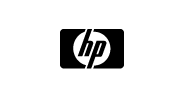HP OpenVMS V8.3 programming features
Course number HE634S
Delivery method
Instructor-led training (ILT)
Onsite dedicated training (OST)
Course overview
This course is intended to quickly bring the application programmer up to speed in an OpenVMS environment. The scope of material is fairly broad from basic compiling to advanced system services. Although some of the material will be provided as an exposure to capabilities available to the programmer, it is expected that the students will be able to program at an in depth level upon completion of this course. The course covers the following categories: General Programming, Synchronization, File System and RMS, Processes and Scheduling, and Memory Management.
Prerequisites
Before taking this course, students should:
- Have a fundamental understanding of OpenVMS
- Be able to issue DCL commands
- Be able to create and edit text files
- Be familiar with one of the following programming languages:
- C
- FORTRAN
- BASIC
- COBOL
- Macro-32
Audience
OpenVMS Application and System Programmers
Course objectives
This course is designed to take a programmer with basic DCL understanding and provide the foundations to take advantage of all available features of the OpenVMS operating system. The course will be driven by examples of the use of major system services and run-time library procedures. Most examples are provided in both C and FORTRAN and one other language: Macro-32, BASIC or COBOL. Only components provided with a standard distribution will be addressed in this course, i.e. other than the compiler, no layered products are incorporated into the course. The course includes lab exercises designed to reinforce the skills taught.
Benefits to you
Although the material is broad and some of it will be absorbed only as an overview, it is expected when the student leaves the course she/he should minimally be able to:
- Complime and link a program
- Read listing and map files
- Understand call procedures, including system serviecs and run-time library routines
- Create a process
- Communicate with another process
- Synchronize using event flags and locks
Course outline
Introduction
- CISC vs. RISC vs. EPIC Architectures
- Data Types
- OpenVMS Access Modes
- OpenVMS Processes
- OpenVMS Alpha Memory Management
- OpenVMS Calling Standard
Compiling and Linking
- OpenVMS Compilers
- Common Compiler Options
- Link Command
- Image Activation
- Symbolic Debugger
- Data Alignment
- Symbolic Naming Conventions
- Libraries Used by Compliers and Linkers
Library Routines
- Floating Point Formats and Coversion
- Run-Time Library Routines
- General Purpose Library Routines
- Screen Management Library
- String Manipulation Library
- Utility Routines
- System Services
Events and Synchronization
- Synchronization
- Events Flags
- The "I/O" Status Block
- Asynchronous System Traps
RMS
- RMS Concepts
- RMS Structures
- RMS Services
- Special Language Considerations
- RMS System Services Examples
- File Sharing and Record Locking
- Language Specific Considerations
- RMS Utilities
Low Level I/O
- Assigning Channels
- The QIO System Service
- File I/O
- Terminal I/O
- Mailbox I/O
Fast I/O
- Buffer Objects
- Fast I/O Concepts
- Implementing Fast I/o
Lock Manager
- Locking Concepts
- OpenVMS Support for Locking
- OpenVMS Lock Implementation
Time and Timers
- Time Formats
- System Time and Time Conversion
- Coordinated Universal Time (UTC)
- Library Routines Supporting Time
- System Timers
Processes and Scheduling
- The Process
- Image Activation
- Process Creation
- Getting Job/Process Information
- Process Selection
- Process Management / Control
- Terminating Images / Processes
- Exit Handlers
Shareable and Resident Images
- Shareable Images
- Resident Images
- Upis u radnu knjižicu: ne
- Certifikat: ne
- Uvjerenje: ne
- In-house: ne
- Svjedodžba: ne
- Diploma: ne
